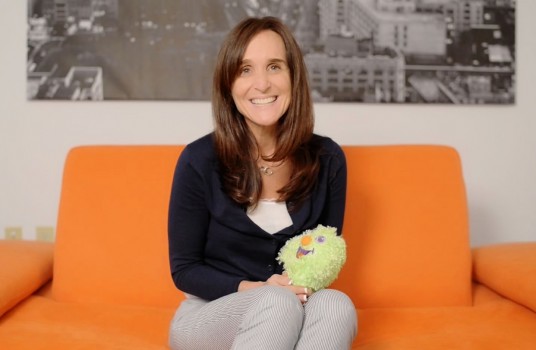ALISON GRISWOLD
The Water’s Fine: How hiring a business broker turned a Florida couple into pool entrepreneurs

After 30 years of telecom and network systems work in corporate America, John Smee was ready for a change. He’d thought plenty of times before how nice it would be to find a little operation of his own and take over as its boss. So in late 2012 he decided to get to it. He was ready to buy a small business.
Fast-forward six months, and Smee and his wife, Kathleen, had set up as owners of Florida Pool & Spa Service, a pool-cleaning business in central Florida. As unglamorous as that might sound, it was also exactly what the Smees were looking for. Retail would have been too time-consuming, and something in education too all-consuming. The service sector seemed more manageable. They looked at lawn maintenance, pool maintenance, house cleaning, and property management. They settled on pools.
I’ll hazard a guess that most people dreaming of buying their own small business—even extremely logical ones—don’t immediately think of pool cleaning. So how did the Smees arrive at the conclusion that it was the best fit? They used a business broker.
Much as the buying and selling of property spawned the real estate industry, the buying and selling of small businesses has produced its own class of brokers. But unlike real estate agents, who are held to strict licensing standards in all 50 states, business-broker standards are much more hit or miss. “It’s the wild, wild West,” says Ken Stebbins, state director of Business Brokers Florida. “I’d be very careful.”
In this regard the Smees were fortunate: Florida is among the 14 states that require business brokers to obtain licenses. Even so, the couple was wary. After interviewing and vetting all of their candidates, the Smees settled on Mike Shea of Transworld Business Advisors. In his 10 years of experience, Shea has conducted 200 transactions and fielded far more inquires than that. “Everybody wants to be a business owner,” Shea tells me—there’s always the guy who dreams ofrunning his own bar or the woman who wants to open a bistro. “I wake up every morning to 20 or 30 emails from people all over the world.” Of the dozens of people who email to inquire about purchasing a business each day, Shea says 90 percent never even set up a meeting.
Buying a business is hard—there’s no way around that. Aside from the financial and regulatory work that has to be done to transfer ownership of a company, arranging the transaction is a delicate process. “In real estate you’re taught to get on the roof and shout, ‘Hey world, this is for sale, bring me your offers,’ ” Stebbins says. “In business brokerage you have to shut your mouth. If the employees find out about [a sale] they’ll tend to quit, and that’s not in the best interest of your client.”
Shea says that in his experience, 50 percent of transactions that go to contract will never even close. “If someone’s tells you that everything is going to be rosy and wonderful, you should probably run away,” he says. For their efforts, Shea says most brokers collect a commission of 10–12 percent.
Once the Smees found Shea, he walked them through the pros and cons of various businesses they might acquire, eventually pointing them toward the service sector. Together they set a spending cap for the investment and kept an eye on listings for good opportunities. They wanted the right fit, but they weren’t waiting around for something perfect. “You can spend forever looking for the perfect one, and telling yourself an endless list of why you shouldn’t buy this one or that one,” John says.
Six months later, the pool business was theirs, along with all the trials and tribulations that accompanied it. “Customers are terrible,” John says, and sighs. “I say that flippantly—they are not. Some are.” He relays the main horror story to date: a customer who always paid late or didn’t pay at all. Three months down the line, the Smees got a check that bounced and learned from a bank that there was no money in the client’s account.
On the bright side, John tells me, he got what he was looking for when he left the corporate world. “It was a specific freedom I was after—freedom from the decision-making of those above me in a chain of organizational command,” he says. “My spouse and I are the ‘maximum leaders’ of our little company, and we get to make the decisions we deem best for our enterprise, and then implement them. … We also recognize that we can and already have made decisions which in retrospect were wrong. Those decisions are ours and that is the freedom we wanted.”
After going through several months of turbulence—losing customers during the ownership transition and finding new ones—things have settled out. Customers are fickle, the Smees have found, but that’s life. It’s not a cash-based business, so keeping track of the money isn’t too hard. Keeping track of workers is another story—sometimes they show up, other times they don’t. John says he always knew that running a small business would mean trading “one set of responsibilities and challenges for another.”
About a year after starting the small-business search process, John returned to the information-technology sector to work at EarthLink; Kathleen is mostly running the business these days. But if corporate work ever starts to drag, he knows he can reimmerse himself in pools. “The small business thrives and grows in relation to skill and effort put into it,” he says. “It is doing so now, but if I return to it, we then double time spent and effort made—so it grows faster.”
RELATED ARTICLES

Funding Circle Raises $65 Million for Peer-to-Peer Small Business Loan
Venture capital firms have come to see small business lending as an industry ripe forRead More

Moms Build a Small Business on Better Tissues
In 2007, Julie Pickens and Mindee Doney found a $16 million business hiding in theirRead More

Comments are Closed